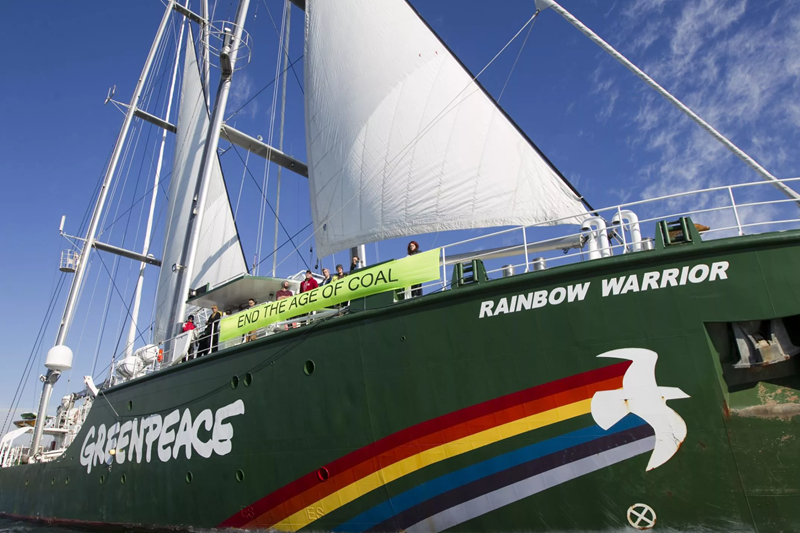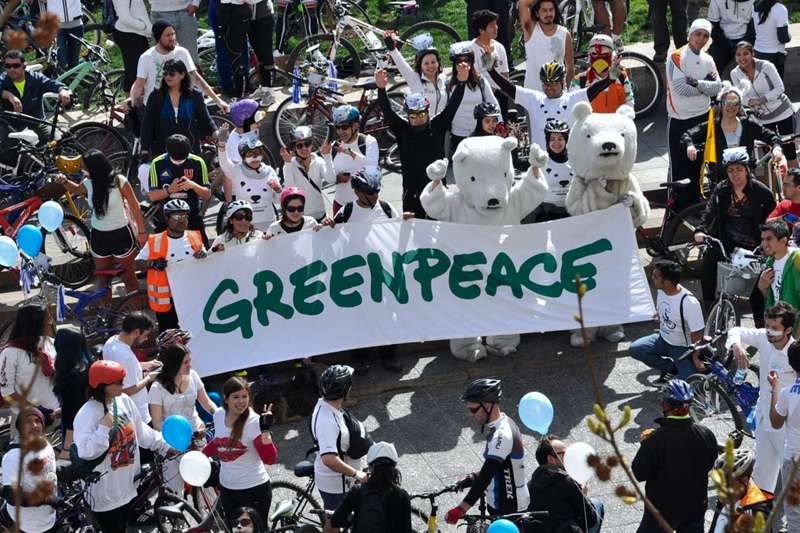Greenpeace stands as a globally esteemed and influential environmental group. Committed to protecting our planet and driving sustainable progress, Greenpeace has pioneered groundbreaking projects and campaigns to tackle environmental threats. With a bold approach and unwavering dedication, its impact on global environmental change is profound and undeniable.
From idea to movement: how it all began
The environmental movement began in the late 1960s when a small boat staged a landmark protest on the Canada-US border to protest underground nuclear testing and the dumping of radioactive waste. But nuclear tests were still conducted — and they were preparing for a much more powerful explosion. Then environmentalists from Canada sailed on an environmental protection expedition by boat to Alaska, thus expressing their protest. But the team did not reach Alaska, but rumors about the protest spread — and the American government stopped preparations for nuclear weapons tests. A reserve for birds was created on the island where they were planned.
At first, the organization was called The Don’t Make a Wave. This name took after the fear at the time that nuclear weapons tests could create tidal waves.
After that, Greenpeace organized large-scale campaigns against commercial whaling, seal hunting, and nuclear testing. Mostly, these were direct action actions — activists physically prevented the hunt by stopping their boat between the whale and the whaling ship. Thus, from one boat Greenpeace grew to a few million followers.

What are its Key Priorities?
Greenpeace focuses on several critical priorities to address today’s most urgent environmental challenges. Central to their mission is combating climate change by reducing greenhouse gas emissions and advocating for renewable energy sources like solar and wind. Protecting the oceans is also a major priority, with efforts directed at creating marine protected areas, addressing pollution, and regulating fisheries to safeguard marine life.
The organization actively works against poaching and illegal hunting of endangered species while striving to preserve and restore wildlife habitats. Greenpeace promotes sustainable agriculture by opposing GMOs, supporting organic farming, and reducing the use of pesticides and chemical fertilizers.
Big actions and wins
The organization can boast of many victories. Greenpeace conducted many campaigns against commercial whaling. In 1982, the organization forced the International Whaling Commission to consider a moratorium on commercial whaling (started in 1986). In 1994, the area of the Antarctic seas was declared a reserve for whales.
Evacuation of inhabitants suffered from radiation contamination after the explosion of an atomic bomb at the American Greenpeace ship “Rainbow Warrior”, the campaign against environmental destruction of the Niger River Delta caused by Shell Oil Co in 1985, debate against chlorine and dioxin polluting in 1976, speaking up about problems of air pollution and destruction of the ozone layer – the list of achievements is long. Their list of accomplishments is extensive.




